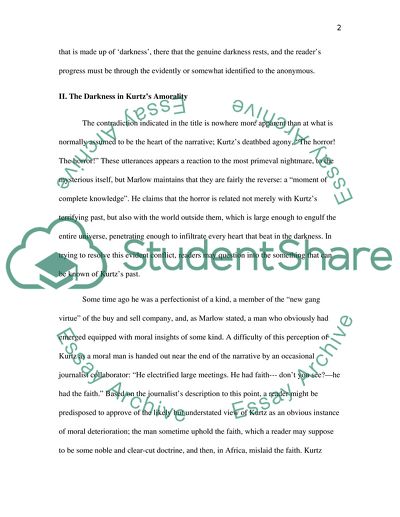Cite this document
(“Heart of Darkness: Morality and Meaning Essay Example | Topics and Well Written Essays - 3500 words”, n.d.)
Retrieved from https://studentshare.org/literature/1549536-heart-of-darkness-morality-and-meaning
Retrieved from https://studentshare.org/literature/1549536-heart-of-darkness-morality-and-meaning
(Heart of Darkness: Morality and Meaning Essay Example | Topics and Well Written Essays - 3500 Words)
https://studentshare.org/literature/1549536-heart-of-darkness-morality-and-meaning.
https://studentshare.org/literature/1549536-heart-of-darkness-morality-and-meaning.
“Heart of Darkness: Morality and Meaning Essay Example | Topics and Well Written Essays - 3500 Words”, n.d. https://studentshare.org/literature/1549536-heart-of-darkness-morality-and-meaning.


